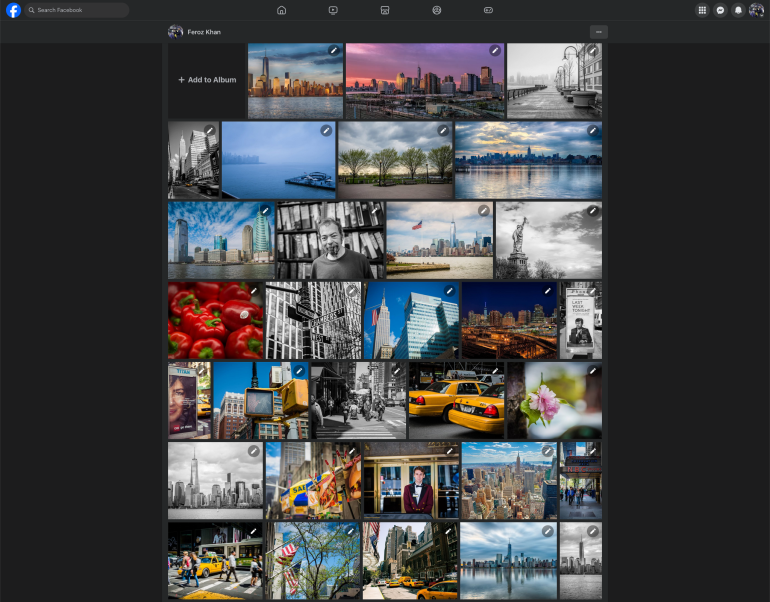
An unexpected email that came in from Facebook last month rekindled a longstanding feeling of mine. We aren’t just consumers of social media; we contribute to it greatly, too, some of us significantly more than others. Often it’s personal photos and videos that we upload on there, without a second thought about backing up these memories elsewhere. We always feel we can just go back to these sites any time and use them as digital archives of our previous lives. But that’s where most of us get it wrong about social media, and it’s about time we made a serious shift in our attitude towards this.
An Awakening
A few weeks ago, an email came in from Facebook with the subject, “Facebook’s Video Storage policy is changing: download your old live videos“. Here’s what it said in detail:
“Download your old Facebook Live videos by 5 July. We are sending you this email because you have previously broadcasted a Facebook Live video. Changes are being rolled out by Facebook to its storage policy for Facebook live videos. Starting on 19 February, Facebook live videos will be retained for 30 days by default on your Facebook Page or profile, during which, you can replay, delete or download the video. After 30 days, you will no longer be able to access your live broadcasts and they will automatically be removed from your profile or Page and deleted from our servers. As part of this transition, we will be deleting all Facebook live videos older than 30 days and we want to make sure that you have the opportunity to save your past Facebook live videos. Any existing live videos published before 19 February will be deleted from your Page or profile, but you can download them until 5 July. Click here for more information on our download options.”
I first checked to see if it was a phishing scam, which it wasn’t. This was a genuine email from Facebook informing me that all live videos of mine older than 30 days would be deleted soon from my social media account there. It didn’t really trouble me since I barely went live a couple or so times many years ago. But it did make me realize one thing – none of these social media platforms can be trusted to hold on to our precious memories indefinitely. The matter isn’t limited to Facebook, of course; Instagram, TikTok, Twitter (X), and other platforms have all updated policies, altered features, or even shut down services. This leaves them scrambling to salvage content they assumed would last forever on these websites.
The Illusion of Permanence on Social Media
Most people don’t even realize that the photos you upload on there are never saved in their original file size. I don’t blame them either because, from a storage management perspective alone, the amount of data being uploaded to social media sites each day is staggering. As I gently brush off the dust from my 1-terabyte SSDs, I read that 402.74 million terabytes of data are being uploaded to these platforms every single day from around the world. Facebook alone generates 5 petabytes of data per day, according to the website Digitalsilk.com. I can’t even get my head around the amount of photos and videos that must be, let alone how many acres of physical servers are needed to be able to manage this on a daily basis. Of course, this number is only set to increase in the years to come, so really, what would prevent these platforms from just deleting your data by giving you a short notice like this, leaving you scrambling to download years or even decades worth of (unfortunately highly compressed, lower quality) photos and videos?

Social media platforms make us feel like our photos, videos, and stories are safe with them, but they clearly aren’t. I have read so many accounts of people having their social media accounts removed or deleted overnight by platforms simply because of comments or posts that don’t align with what their governments subscribe to. I’ve seen numerous people have their account reach limited or accounts suspended because they’ve taken humanitarian and political sides that Meta seems to disagree with. Sometimes it’s not even clear why they’ve received such a harsh punishment. Can you imagine waking up one day and finding that your account has been deleted for good and years worth of photos and memories have just disappeared because some content moderator didn’t agree with what you posted? At one point, it even seemed like Instagram would delete inactive user accounts. Are we really going to leave the lifespan of our memories to the whims and fancies of moderators and policymakers on social media platforms?
Don’t Store Your Photos Exclusively Online
Aside from the fact that social media sites use your personal data and photos for their own personal gain (despite them denying this on numerous occasions), they owe nothing to their users. Don’t think that just because you have a blue tick on your account that you paid for, you’d get extra privileges from them when it comes to account restoration or back-end support. They really don’t give two hoots about you or your images aside from making nauseating amounts of profits off of them. And social media companies close too – remember Google Plus? Or Vine, that popular short video platform that shuttered all of a sudden and had users rushing to download their content off it? Let’s not even talk about so-called professional photographers who use their Instagram accounts as their portfolios, risking their credibility and careers by doing so. Back in the day, proper portfolio books would be created by serious photographers wanting potential clients to have a tangible connection to their body of work. Now you have people swiping away on an iPad when they’re in a meeting trying to nail a new client.

My grandmom has loads of albums of photos from my and my brother’s childhood. Last year, when it was time to make a slideshow of his life at his wedding, it was so much easier to locate the carefully cataloged prints of his life than to go through my Lightroom archive from 2009 onwards. That was when I truly realized how valuable a photo print is in documenting a person’s life, not just as a medium to hold and admire a photo instead of viewing it on a monitor. As the email from Facebook proves, even content we think is under our control (like live videos on our profiles) can vanish overnight.
It’s Accessible Today, Tomorrow It Might Not Be
Looking back at old photos isn’t just a way of rekindling your youth; it’s also a way to reduce anxiety, according to a recently conducted survey by FUJIFILM North America Corporation and mental health expert Dr. Lauren Cook. A survey they conducted, titled Frame of Mind, found that 74% of people revisit their photos to relive memories—because, let’s be real, nothing hits quite like a perfectly timed snapshot from a trip, a family get-together, or that one blurry but perfect concert photo. But here’s the cool part: photos don’t just bring back memories; they actually make people feel better. According to the survey, 64% of respondents said looking at their photos makes them smile more, 58% said it helps reduce anxiety, and 49% felt an instant mood boost. Your camera roll isn’t just a collection of pixels—it’s a happiness machine. And if that’s not a reason to print some of your favorite shots and keep them where you can see them, I don’t know what is.
Now imagine if your favorite social platform decided to monetize access to your photos tomorrow. Or if they threatened to drastically reduce your available storage to a minuscule free tier and make you pay up to get more storage. Yes, I get that it’s nice to be reminded of memories on these platforms, but trust me, you’d have far fewer worries if you printed your important photos and stored them properly.

Be in complete control of the lifecycle of your photos, and not just from a digital perspective. You don’t want to deal with the anxiety of losing all those social media photos in one shot. An average-quality print of your precious photograph is a far better thing to have than a poorly compressed or non-existent / non-accessible digital version on a social platform server. Digital galleries often go down the “out of sight, out of mind” route. Print, print, and print as much as you can. If you shoot with the mindset of printing, you’ll also find yourself becoming better at photography, as you’ll be more selective in your composition and framing. A print is self-worth, as editor-in-chief Chris Gampat once wrote:
“A print is self-worth. It’s a statement that you’re putting on an image that you’ve created to make it manifest. It isn’t necessarily a collab with a brand where you’re building their worth. And it totally isn’t a thing where you’re creating for likes and comments to build the interactivity of another brand. Instead, it’s devoid of all there. There are no ads or notifications trying to ping for your attention with a print. It’s just exactly what it is.”
A Print Is Anyday Better Than An Online Photo

Social media platforms are fantastic for sharing—but terrible for preserving. As the Frame of Mind survey proves, photos are emotional infrastructure. They’re how we stay sane, connected, and human. We’re not asking you to print every photo you take; we both know that would be an expensive affair. Print the best few from an event or an outing, but make printing your photos a consistent habit. Don’t just do it for today, do it for the future. Because in 30 years, when Instagram is a forgotten app, and your iPhone is a paperweight, your prints should still be around. And with them the joy, the stories, and the proof that you lived. If your great-grandchildren want to know more about how you lived, will they sift through a dead Instagram account (if it hasn’t already been deleted by them), or a set of photo albums safely stored in the attic? Don’t
I’ll close this article off with a quote by Ben, the character played by Ed Harris in the movie Kodachrome:
People are taking more pictures now than ever before, billions of them, but there are no slides, no prints. Just data. Electronic dust. Years from now when they dig us up there won’t be any pictures to find, no record of who we were or how we lived.
The Frame of Mind survey was conducted by MarketVision Research, and the findings were provided to us by our Fujifilm USA reps. Findings are based on a survey conducted during 11/25/2024 – 12/4/2024 among 2,014 US-based respondents representative of the U.S. general population. The margin of error is +/- 2.2 at the 95% confidence level. To read more about the survey head to the Fujifilm USA news release page.

